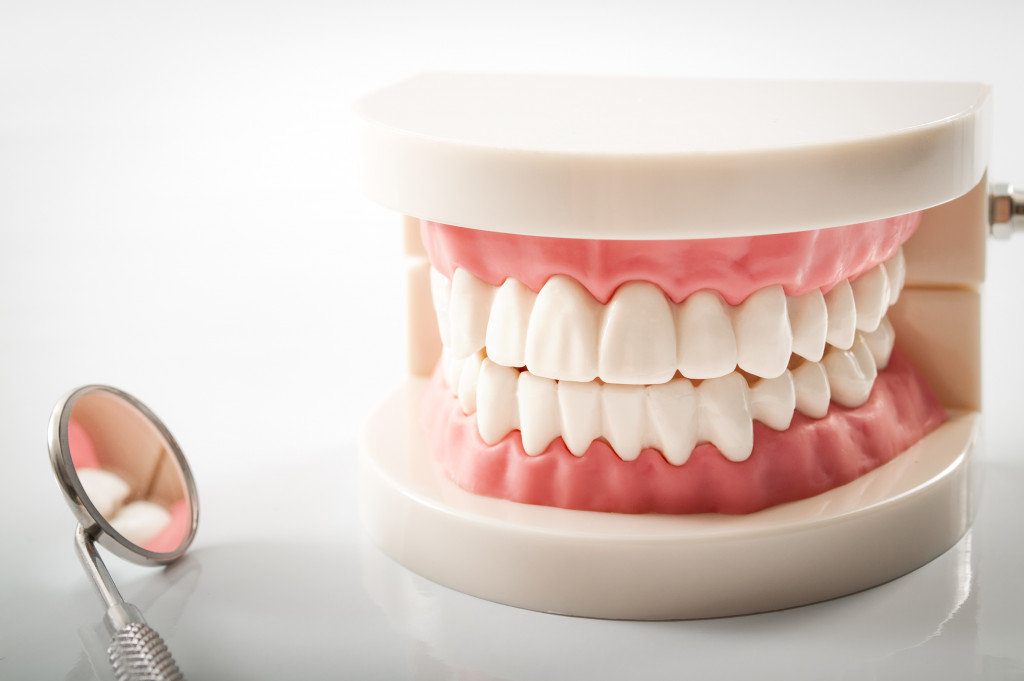When was the last time you visited the dentist? Often, we only book dental appointments when we’re experiencing pain. But thankfully, the world seems to be awakening to the importance of dental activities. According to the World Health Organization, between 60% and 90% of school children have one dental activity. Among adults, nearly 100% have the same. But still, between 15% and 20% of adults aged 35 to 44 have severe gum disease. And about 30% of the elderly don’t have any natural teeth left.
Contrary to popular belief, losing your teeth isn’t inevitable in old age. You can maintain your perfect smile until your golden years. But that’s only possible if you take good care of your teeth.
Neglecting your oral health can lead to severe complications, some of which are fatal. The following dental problems are known to affect your overall health:
1. Cavities
Cavities, a.k.a. tooth decay, are one of the most unmet health treatment needs. It’s characterized by toothache, tooth sensitivity, and visible holes and pits in the teeth. A simple and inexpensive fluoride treatment will quickly cure cavities. Sadly, many people choose to forgo it instead.
Untreated cavities can cause pain and infections, which can then lead to difficulties in eating, speaking, playing, and learning. It’s indeed a lot harder to perform these activities when you’re in pain. In extreme cases, the decay can develop into an abscess, a severe infection under the gums, which can spread to other parts of the body. An abscessed tooth is excruciatingly painful and causes pus to form in the affected areas. Left untreated, an abscessed tooth can be life-threatening.
A cavity has already progressed into an abscess when the pain starts to extend toward your ear, jaw, or neck. It gets worse when you lie down. Red, swollen gums, facial redness, discolored and loose teeth are common symptoms. You may also contract fever and swollen lymph nodes.
Treating an abscessed tooth may be painful, but the pain is worse if the bacteria have spread to your whole body. Your dentist will drain out the pus and may follow it with a root canal procedure. If the tooth is so damaged, they will extract it instead. They may also prescribe antibiotics if the abscess has weakened your immune system.
2. Crooked Teeth

Crooked teeth can cause more than just an imperfect smile. Since crooked teeth tend to be crowded as well, it makes it harder to brush every corner of your teeth. This would cause plaque buildup, which could lead to cavity or gum disease.
Crooked teeth are also more susceptible to injury. The front teeth are especially vulnerable, chipping often because of impact. In addition, the enamel of cooked teeth wears out more easily, causing tooth sensitivity.
If the plaque in your crooked teeth becomes severe, you might contract a periodontal disease. It’s a severe gum infection that can damage the bones under your teeth. It would be like your teeth are being eaten from the inside. Prevent this outcome by getting your teeth straightened. A skilled orthodontist will give you the type of braces you personally prefer. Braces will cure not just your crooked teeth but your low self-esteem as well.
3. Gingivitis
Gingivitis is also gum disease but not as severe as periodontal disease. However, it could become periodontal disease if left untreated.
Aside from damaging the bones under the teeth, periodontal disease may also affect your heart. The evidence of this isn’t conclusive, though. But according to Peter Loomer, DDS, Ph.D., the connection of gum disease and the heart may be related to inflammatory products such as c-reactive protein (CRP). It’s a protein found in the blood plasma. Having periodontal disease increases your CRP, potentially causing arterial plaque.
Symptoms of gingivitis include painful and swollen gums and bleeding when your brush and/or floss your teeth. Gingivitis can be treated with home remedies, like a saltwater gargle. Using a herb mouthwash, such as lemongrass, aloe vera, or tea tree oil, may also help. But for the best results, go to your dentist. It will help identify any other dental issue in case you have another.
Many people have developed a fear of the dentist after undergoing a painful dental procedure. If you are the same, work on your fears by going to therapy if you must. Avoiding the dentist will only cause more pain, not to mention higher treatment costs. If you have had an experience with an incompetent dentist, it doesn’t make all dentists incompetent. Most of them are professionals who have been trained to treat their patients with utmost care. For your peace of mind, seek testimonials about the dentists in your town before booking an appointment.

